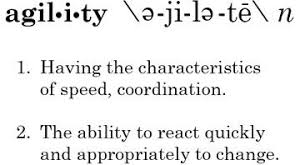 What is a remote office? It is a virtual office where every employee is working from the comfort of his home, café, or wherever else catches his fancy. Remote offices are all the rage these days. It’s an emerging trend. Not only are established businesses moving to incorporate the remote office element into their existing systems but even start-ups are choosing the remote office as their preferred option.
What is a remote office? It is a virtual office where every employee is working from the comfort of his home, café, or wherever else catches his fancy. Remote offices are all the rage these days. It’s an emerging trend. Not only are established businesses moving to incorporate the remote office element into their existing systems but even start-ups are choosing the remote office as their preferred option.
Make no mistake about it. This isn’t one of those fads that catch people’s fancy. If you only look at a list of completely remote companies, you’ll realise that remote offices are here to stay. Even at Inkjet Wholesale, we’ve embraced the remote working system despite the fact that inventory management requires warehouses. So, why is the remote office being adopted so quickly the world over? It’s the inherent advantages it provides. Here are 7 of the most prominent.
Remote Office Advantage #1: Global Talent Pool
Remote offices take away any and all geographic constraints. This has a massive impact on the talent pool available to you. In fact, with remote offices, the available talent pool is as big as it can get without you tapping into alien life forms.
A larger talent pool means that you can improve the quality of your workforce. When you hire locally or within geographic limitations, you can end up hiring mediocre professionals simply because of lack of availability.
Having a more talented work-force will have a domino effect on your business. In simple words, it will help you grow.
Remote Office Advantage #2: Knowledge Diversity
Having a massive talent pool to choose from comes with the benefit of diversity. You can end up hiring people from different countries, regions, and time zones. This brings in a wide variety of experiences into the ambit of your business. New employees may even bring better ideas and concepts to the business from their own experiences.
Knowledge diversity can be particularly beneficial when it is shared freely because it promotes innovation. Even if an employee doesn’t have new, ground-breaking ideas, his discussion with another employee may yield a revolution for your business to benefit from.
Remote Office Advantage #3: Reduced Overhead Costs
 While salaries account for a large chunk of every business’s recurring expenses, office overheads come a close second. With a physical office, you’ll begin by paying either the acquisition cost for space or a regular rental. Commercial space, let’s admit, is not cheap unless you look at suburbs. If you look at suburbs, then you’ll end up focusing on talent from that region. The suburbs may or may not have the kind of quality you need in your workforce.
While salaries account for a large chunk of every business’s recurring expenses, office overheads come a close second. With a physical office, you’ll begin by paying either the acquisition cost for space or a regular rental. Commercial space, let’s admit, is not cheap unless you look at suburbs. If you look at suburbs, then you’ll end up focusing on talent from that region. The suburbs may or may not have the kind of quality you need in your workforce.
Similar to office space costs are costs associated with furniture, office equipment, a sufficiently powerful internet connection (if you want to test how powerful is your internet you can check via using this Ptcl internet speed test tool ), and utilities. All of these and there subsequent maintenance and management will mean more expenses. You’ll even have to hire more people to maintain these assets.
Now, compare this to the remote office. All you’ll be paying for will be Software as a Service (SaaS) subscriptions. Even if you pay for your employee’s equipment, the remote office setup will still turn out to be more economical than the physical office setup. No matter how you look at it, a remote office setup means reduced overhead costs.
Remote Office Advantage #4: Business Agility
 Consider an unforeseen crisis like a server or service breakdown occurring outside work hours. How does a business with a traditional setup respond? All the relevant people are either called into the office regardless of the time or the crisis is neglected till the working hours next day.
Consider an unforeseen crisis like a server or service breakdown occurring outside work hours. How does a business with a traditional setup respond? All the relevant people are either called into the office regardless of the time or the crisis is neglected till the working hours next day.
Now, consider how a remote office would respond. All the relevant individuals will be notified of the crisis and asked to become available. At most, everyone will become available in a few minutes because all they need to do is excuse themselves from whatever they’re doing and open their laptops.
While the conventional office may take up to 24 hours to respond to the crisis, the remote office has the ability to respond within minutes.
Remote Office Advantage #5: Increased Productivity
 Every individual is unique. They have unique preferences, unique demands on their lives, unique hobbies, and even unique logistical challenges. The traditional work setup assumes that everyone will be productive in the standard 9 to 5 schedule. Countless researches and studies have shown otherwise.
Every individual is unique. They have unique preferences, unique demands on their lives, unique hobbies, and even unique logistical challenges. The traditional work setup assumes that everyone will be productive in the standard 9 to 5 schedule. Countless researches and studies have shown otherwise.
You’ll find that some people perform better in mornings, some do better in the afternoons, while others prefer late nights. When you give people the option of choosing their own schedule, they turn out to be more productive because they’ll choose to work when they’re most inclined to.
Furthermore, having that freedom to choose work timings also ensures that your employee will have a better work-life balance. A better work-life balance means a happier employee and a happier employee automatically means a more productive employee.
Remote Office Advantage #6: Improved Employee Retention
Remote offices almost always report better retention numbers than conventional offices. There are multiple reasons for this. The first is that geographic relocation is not restricted in the remote office. A worker can work from one location one year and then move to another later if required.
Another reason why retention is better in remote offices is that talent poaching is not common. Simultaneously, the employee may not even have many better options where he is located. Also, happiness also factors in remote employees deciding to stick with their employers.
When you pick your own work schedule, have a better work-life balance, and the company takes care of you, then there is no reason for you to look for other opportunities.
Remote Office Advantage #7: Better Recordkeeping
In traditional office setups, it is common for an individual to walk to another individual and verbally convey instructions or suggestions. These instructions or suggestions are not recorded anywhere. Similarly, entire meetings and discussions can go unrecorded in the traditional setup resulting in discord later.
In the remote office setup, it becomes easy to record all discussions. While major verbal or video discussions may have to manually be recorded, minor discussions via chat, email, and text automatically get recorded.
Furthermore, mature remotely operated businesses may even develop highly-evolved auditing and archiving systems so as to get access to all data quickly. Such records can make the business more efficient.
Remote offices have often been cited as the future of business. Their benefits are such that they have the potential to change the way business is done everywhere. However, it’s not only the benefits that they offer. There are associated challenges as well. This is something we’ll focus on next week.




Leave a Reply